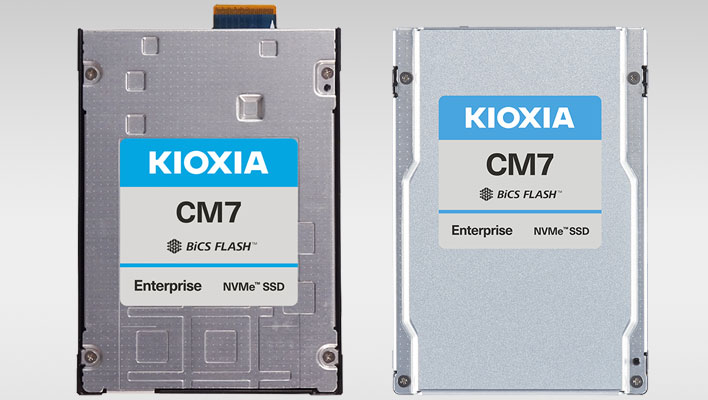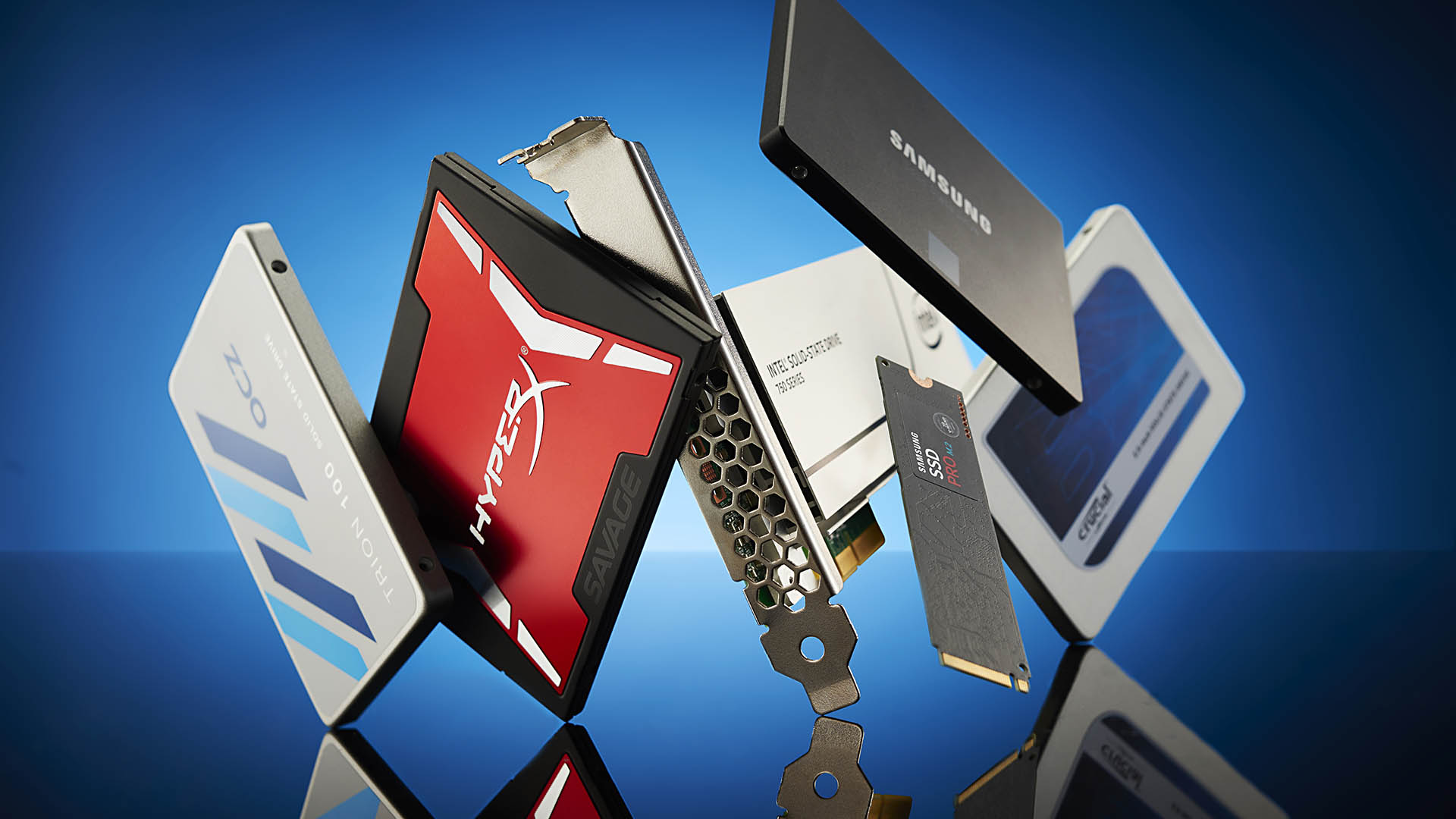Kioxia's new enterprise drives already near the limits of a PCIe 5.0 x4 interface
I want them, but can't afford them.

Kioxia's CM7 PCIe 5.0 enterprise SSD is now shipping to customers. The new SSD already nears the maximum possible throughput of a PCIe 5.0 x4 interface with a read speed of nearly 14GB/s. Due to these near-futuristic specs, this drives give us a taste of what’s to come for the consumer segment. We’ll see a lot of drives around that 14GB/s mark over the coming years, trust me.
There are two CM7 drives, the CM7-V and CM7-R. The CM7-V is a mixed-use version rated for up to three drive writes per day. It's available in capacities ranging from 1.6TB to 12.8TB. The CM7-R is a read optimized drive available in capacities ranging from 1.92TB to up to a drool-worthy 30.72TB.
These SSDs are designed specifically for the enterprise market and will no doubt be very expensive, particularly the higher capacity versions. They're meant for use with AMD's Genoa EPYC and Intel's Sapphire Rapids Xeon Scalable server platforms, both of which support PCIe 5.0.
The drives are available in traditional 2.5-in form factors as well as the newer EDSFF form factor. This stands for Enterprise and Data Center SSD Form Factor. The enterprise SSD market is expected to transition to this new form factor over the coming years.

Best SSD for gaming: the best solid state drives around
Best PCIe 4.0 SSD for gaming: the next gen has landed
The best NVMe SSD: this slivers of SSD goodness
Best external hard drives: expand your horizons
Best external SSDs: plug in upgrades for gaming laptops and consoles
It's interesting that the drives are already shipping, given that PCIe 5.0 systems still aren't available. To you and me, that is. The drives are likely in the hands of OEMs or clients who are using them for validation purposes before the new PCIe 5.0-compatible systems are ready for deployment.
From a consumer and gaming point of view, the release of 14GB/s drives is impressive, but ultimately irrelevant for most of us right now. It's nice to have very fast sequential speeds but how much data do you expect to be able to transfer at a time?
Mainstream X670 or Z790 platforms, for AMD and Intel's next-gen chips. won't have enough PCIe 5.0 lanes to support multiple drives for sustaining these kinds of speeds. Z790 might if manufacturers opt to configure a board with a 8x PCIe slot and two 4x M.2 slots but that's a story for another day.
Keep up to date with the most important stories and the best deals, as picked by the PC Gamer team.
Personally, I'd rather have several PCIe 5.0 x2 drives that can still hit 7GB/s while delivering all of the responsiveness, low latency and random performance of traditional x4 lane PCIe 4.0 drives.
It's unlikely to happen, though. Drive makers will continue to focus on sequential transfer speeds for marketing reasons, even if they are becoming increasingly meaningless. For most mainstream users anyway. A PCIe 5.0 x16 expansion card with four drives would still bring a grin.
Still, the Kioxia CM7 drives should perform very well. 14GB/s sounds great but I’d like to see how they perform across a wide range of workloads. Random performance is critical for servers.
When will I be able to chuck a couple of 30TB solid state drives in my NAS? It’ll be years away. And actually I know I won’t be able to afford them so maybe I'll drop that thought… for now.

Chris' gaming experiences go back to the mid-nineties when he conned his parents into buying an 'educational PC' that was conveniently overpowered to play Doom and Tie Fighter. He developed a love of extreme overclocking that destroyed his savings despite the cheaper hardware on offer via his job at a PC store. To afford more LN2 he began moonlighting as a reviewer for VR-Zone before jumping the fence to work for MSI Australia. Since then, he's gone back to journalism, enthusiastically reviewing the latest and greatest components for PC & Tech Authority, PC Powerplay and currently Australian Personal Computer magazine and PC Gamer. Chris still puts far too many hours into Borderlands 3, always striving to become a more efficient killer.

